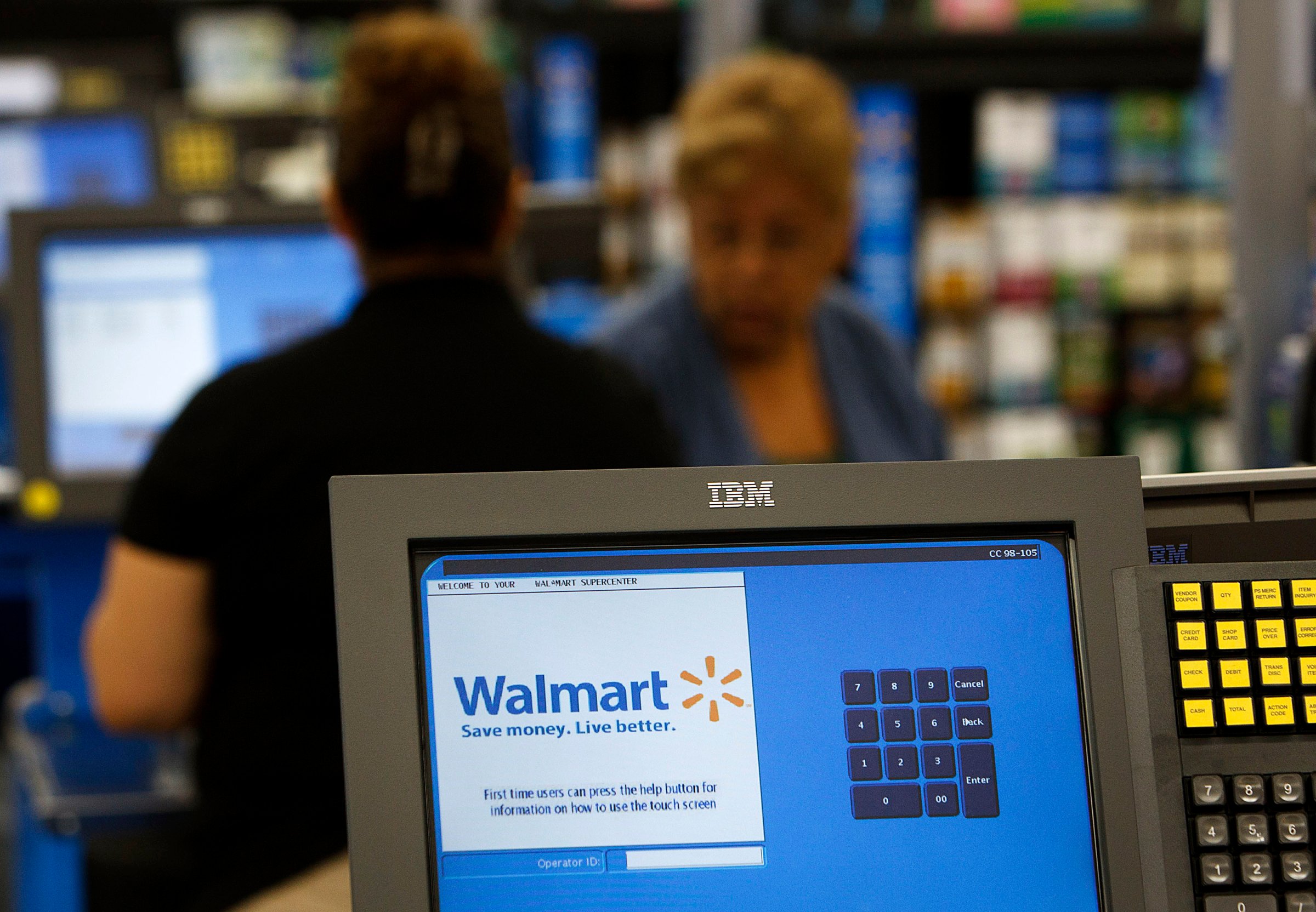
Wal-Mart is among the biggest retailers not accepting Apple Pay, Apple’s new mobile payment system that got underway last week to rousing early success. The big box behemoth is instead going with a different, decidedly lower-tech solution called CurrentC, a mobile wallet developed by a group of merchants, Wal-Mart included, called MCX.
Despite not launching publicly yet, CurrentC is being lambasted in the tech press this week. Why? Over the weekend, several retailers involved with MCX stopped accepting Apple Pay after initially allowing it, which read to many as unfriendly to consumers. And on Wednesday, MCX revealed its email vendor was hacked, exposing CurrentC users’ email addresses and giving the company yet another PR headache.
CurrentC is also seen by many as having been designed more to benefit merchants than consumers. It’s certainly less user-friendly and probably less secure than Apple Pay, but it will help merchants sidestep the much-hated fees they have to pay every time a customer swipes a credit card. CurrentC is also just less cool than Apple Pay—from a tech obsessive’s perspective, it looks like a budget sedan to Apple Pay’s Tesla Model S.
But here’s the thing: None of the tech journalists I know shop at Wal-Mart. For Wal-Mart’s lower-income shoppers, CurrentC could actually have some advantages over Apple Pay. To wit:
1. CurrentC is QR-code based, like Starbucks’ payment app. That makes it backwards compatible with older, cheaper phones (and Android phones) whereas Apple Pay only works with Apple’s top-of-the-line, brand-new phones. Eventually, those iPhones will get older and trickle down into lower-budget shoppers’ pockets, but that’ll take years. The trade-off here is that Apple’s NFC-based system is inherently more secure, as it doesn’t give retailers vital data about your payment method.
2. CurrentC supports consumer loyalty programs (read: coupons), whereas Apply Pay does not. Many shoppers deride loyalty programs as annoying, but I can speak from my experience as a broke college student when I say that coupons can be a vital lifeline for lower-income shoppers. Of course, that support comes at a privacy price: Loyalty programs are really just a thinly-veiled way for retailers to collect data about their consumers.
You’ll notice both of those points contain significant tradeoffs in terms of privacy, a point that Apple CEO Tim Cook emphasized when he introduced the company’s service. Still, there are plenty of reasons for low-end shoppers to adopt CurrentC over Apple Pay, if they embrace the mobile wallet at all. Many won’t—but let the best mobile wallet win.
More Must-Reads from TIME
- Donald Trump Is TIME's 2024 Person of the Year
- Why We Chose Trump as Person of the Year
- Is Intermittent Fasting Good or Bad for You?
- The 100 Must-Read Books of 2024
- The 20 Best Christmas TV Episodes
- Column: If Optimism Feels Ridiculous Now, Try Hope
- The Future of Climate Action Is Trade Policy
- Merle Bombardieri Is Helping People Make the Baby Decision
Contact us at letters@time.com